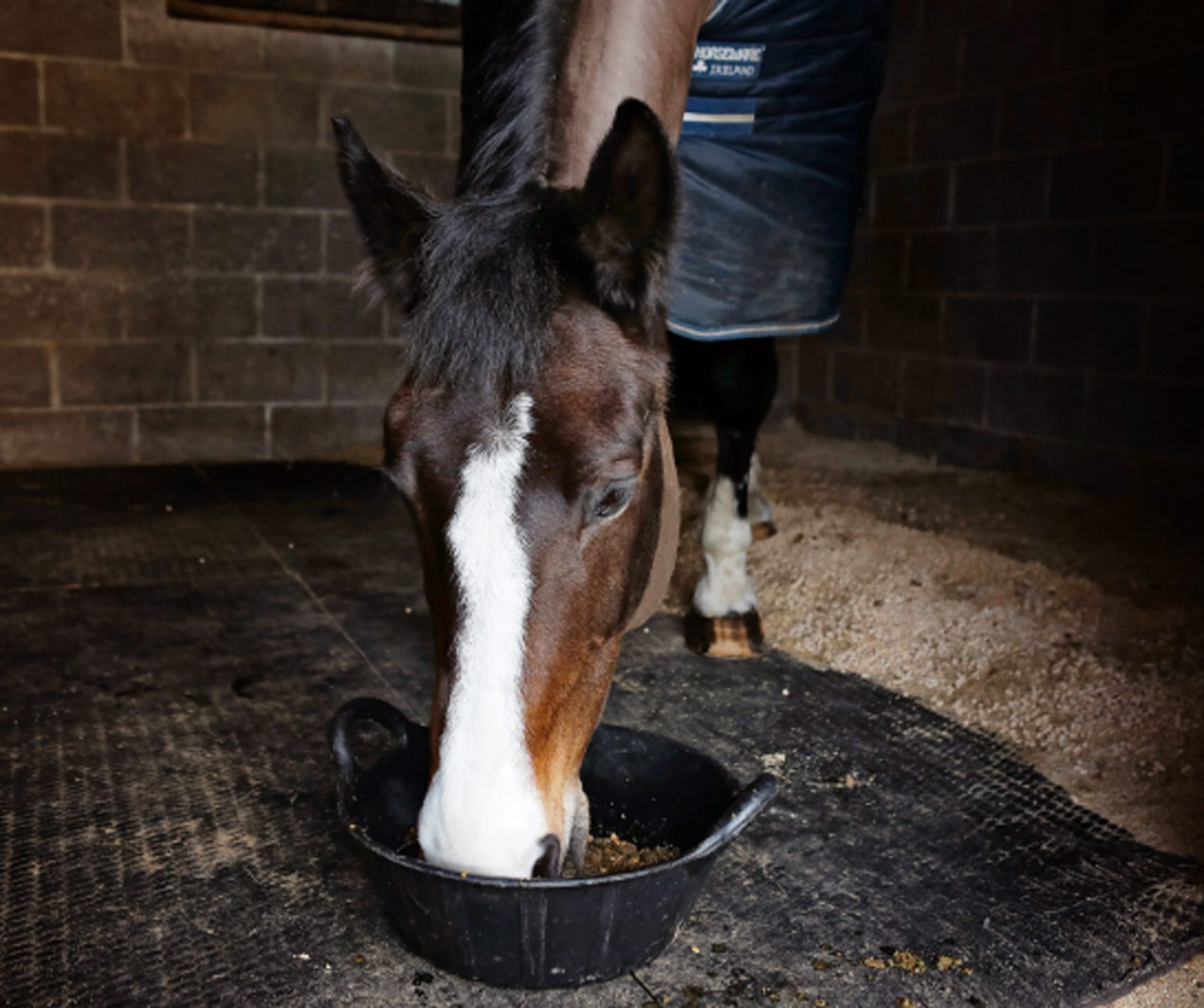Feeding The Poor Doer : Meal Sizes

Some owners will often find themselves in despair as in spite all of their best efforts, their horse will just not gain weight. All of the usual health checks have been carried out, plenty of forage is on offer and they are providing large volumes of feed, so what is it that isn't working?
Horses have evolved to be trickle feeders and so in comparison to the rest of their digestive system, their stomach is relatively small (about the size of a rugby ball). The stomach is therefore designed to empty regularly and once it reaches a certain capacity, feed will move along to the small intestine to begin the first next phase of the digestion process. Feeding larger meals will of course take longer to digest and can move feed along the digestive tract too rapidly. This can lead to an inefficient break down of the feed in certain parts of the digestive system, which will not only increase the risk of digestive upset, but equally prove to be a very inefficient way of feeding. Feeding large meals in a bid to support condition in a poor doer will therefore not necessarily mean your horse will suddenly start to gain weight, and this might explain why you might often be left wondering why all the feed you are providing is not working!
As a guide, it is stated that you should aim to feed no more than 400g per 100kg of body weight, meaning that a 500kg horse should not receive more than 2kg per meal size. This would include any concentrates, chaff, and additional fibres such as beet pulp. It is therefore important to weigh your feeds using their dry weight, not only to ensure you are following recommended feeding rates, but to also ensure that your meal sizes are an appropriate size.

1 round stubb type scoop will typically hold approximately 1.2-1.8kg of a typical cube or mix. With most people feeding a chaff that can also weigh between 300-400g per scoop, it is easy to see how 2kg can be achieved. Splitting larger rations down into as many small feeds as you are able to do so would therefore be recommended in order to promote optimum digestion and utilization of ingredients.
NEED GUIDANCE?
If you would like any further information, please feel free to contact our nutritional team on 01622 718487 or email info@saracenhorsefeeds.co.uk
Feed Advice Form
Complete our online form to receive a detailed nutritional plan for your horse or pony from one of our registered nutritionists.
Quick Feed Finder
Use our quick and easy feed finder as a guide to select the right feed for your horse or pony.












